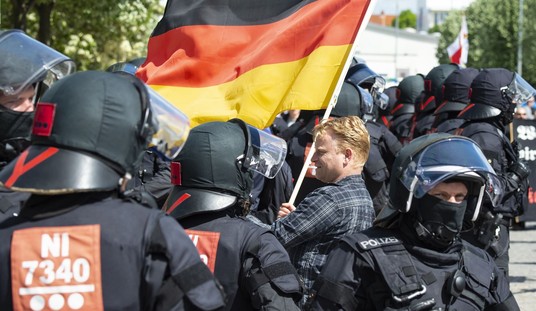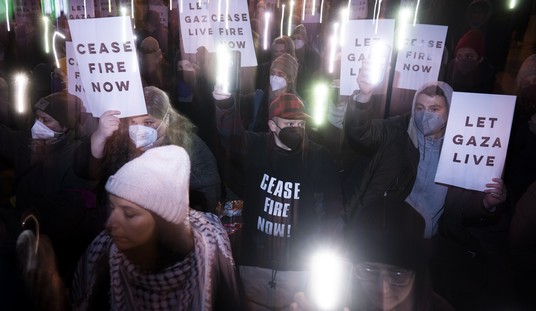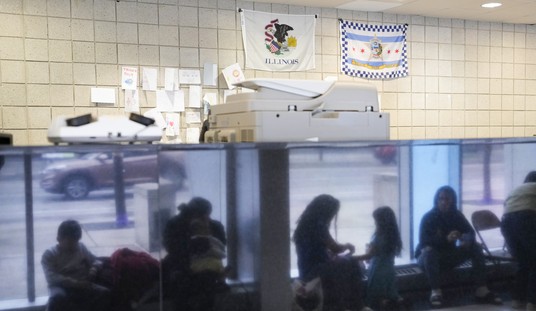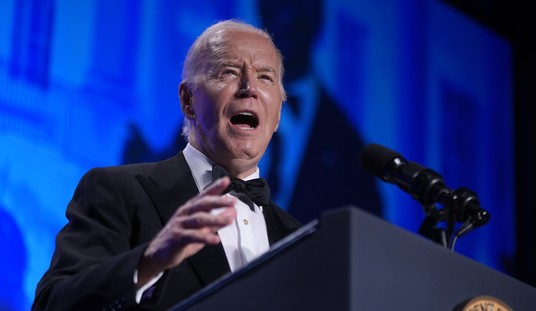Any reason to believe this is true, aside from the fact that (a) Hezbollah officials have already been captured inside Iraq, (b) members of the Mahdi Army have admitted to training with Hezbollah, (c) per Petraeus’s testimony before Congress, Iran is trying to build an Iraqi version of Hezbollah, and (d) according to military sources quoted last month in the NYT, Hezbollah’s training Shiite militiamen in Iran? Yeah, actually: The two authors of the AP piece, Hamza Hendawi and Qassim Abdul-Zahra, also wrote the excellent, prescient AP story from March 2007 about rogue groups led by former Sadr aide Qais Khazali splintering off from the Mahdi Army. They were proved right in that case, to the point where Petraeus himself blamed the Khazali network a month later for the murder of five American soldiers during the infamous raid at Karbala.
They know what they’re talking about, in other words, but this is the AP so I can only quote sparingly.
Hezbollah instructors trained Shiite militiamen at remote camps in southern Iraq until three months ago when they slipped across the border to Iran — presumably to continue instruction on Iranian soil, according to two Shiite lawmakers and a top army officer…
The lawmakers belong to al-Sadr’s movement and were involved in the creation of the Mahdi Army in 2003. The military officer’s job gives him access to highly classified intelligence information.
They said Hezbollah began training Shiite militiamen in the second half of 2006 at two camps — Deir and Kutaiban — east of Basra near the Iranian border. They fled across the border in late March or early April this year after U.S.-backed Iraqi forces launched a crackdown against militias in Basra, Iraq’s second-largest city.
In Iran, training resumed in camps once used by Iraqi exiles who fought with Iranian forces during the 1980s war between the two countries, the lawmakers said. Instruction includes explosives, ambushes and use of rockets and mortars.
This would be a fine time to revisit what H.R. McMaster said about how badly one has to kid himself to believe Iran’s not hip-deep in sectarian warfare inside Iraq. The obvious question: What are Sadrist lawmakers doing dropping a dime on Hezbollah? Presumably it’s the JAM that’s the main beneficiary of Iran’s largesse; exposing Hezbollah’s influence inside the country only brings heat on their own guys. I can only guess either that the two sources here are disgruntled for whatever reason, that in fact it’s the Sadrists’ rivals in ISCI (a.k.a. SCIRI) that are really benefiting from Hezbollah’s presence, or the Sadrist leadership isn’t as chummy with Iran as it used to be. Remember, one of the big subplots in trying to manage the Shiite militias is figuring out which self-proclaimed Sadrist fighters actually answer to Sadr versus which ones answer to Iran and merely use the Sadr brand because it commands respect from Shiite nationalists. Sadr himself is sufficiently concerned about it as to have made that announcement recently advising Iraqis not to trust anyone calling himself a Mahdi Army fighter unless he’s part of a special elite unit Sadr’s busy putting together. The sources here may be working to further that end, exposing the “special groups” and how they operate to make it harder for them to operate and create headaches for the Sadrist leadership. If so, it tells you a lot where the militias stand right now vis-a-vis Iraqi public opinion.
Other morsels from the article, since I can’t quote: Hezbollah keeps its footprint inside Iraq light, never numbering more than 10 instructors at a time; Hezbollah leader Hassan Nasrallah spends several hours a day dealing with matters related to Iraq, according to a Lebanese newspaper editor who’s “close” to the group; and it was Hezbollah, supposedly, that planned and supervised the Karbala raid carried out by the Khazali network, which would answer in part the lingering questions of why that operation, more so than any other Shiite militia attack, seemed unusually professional (the attackers spoke English, had American military uniforms, etc.). Oh, and then there’s this: “A senior Mahdi Army commander in Baghdad … said Hezbollah’s operations in Iraq had been supervised by Imad Mughniyeh, a top commander of the guerrilla group killed in a car bomb in Syria last February.” Is that idle boasting aimed at coopting the legacy of a revered Shiite superterrorist like Mughniyeh, or is there truth to it? Note that it wouldn’t be the first time someone claimed to see his fingerprints on the Mahdi Army.









Join the conversation as a VIP Member